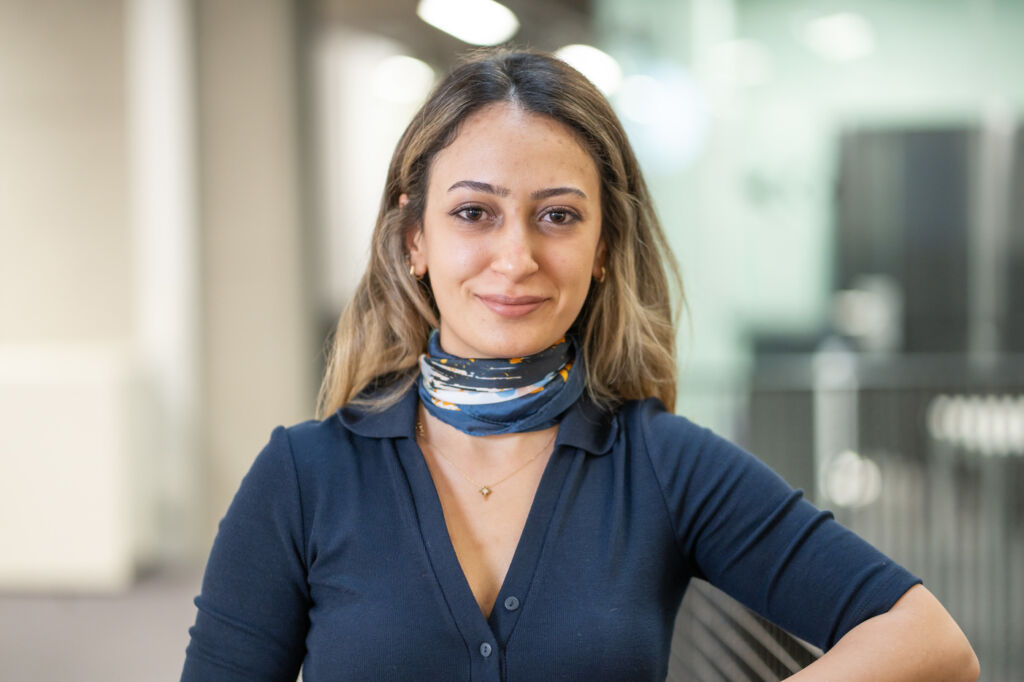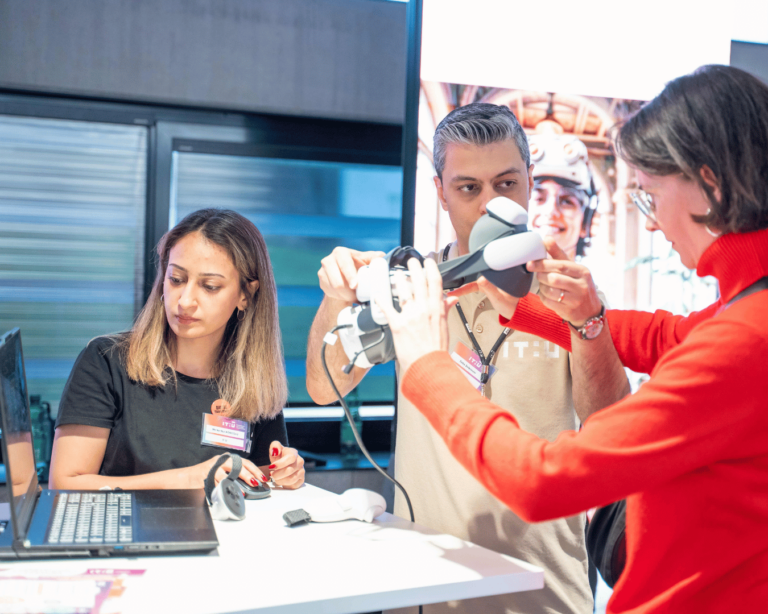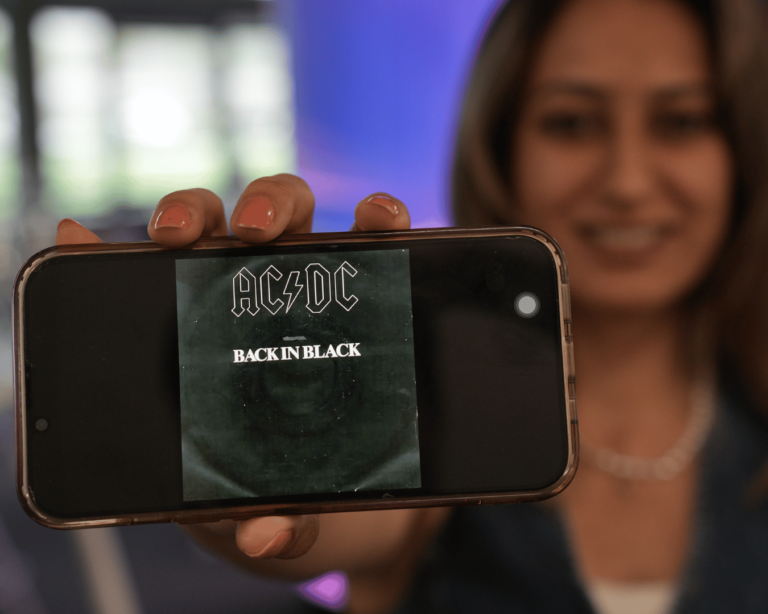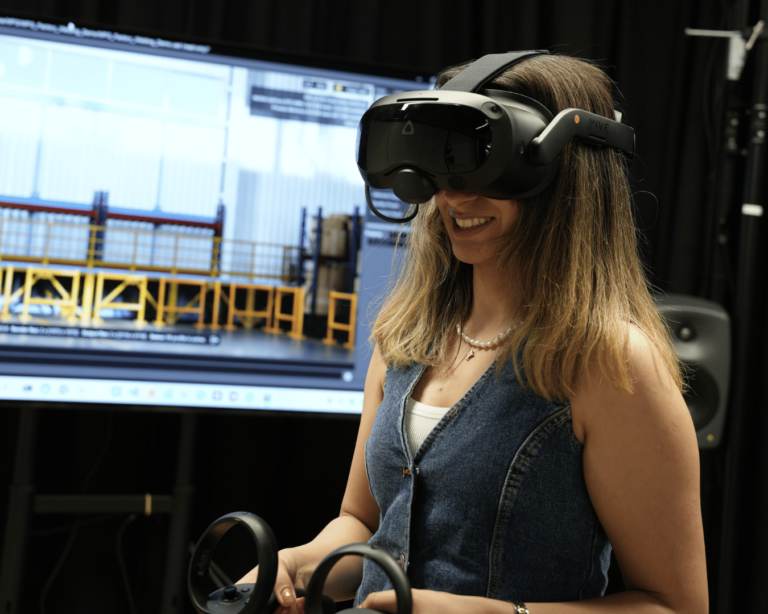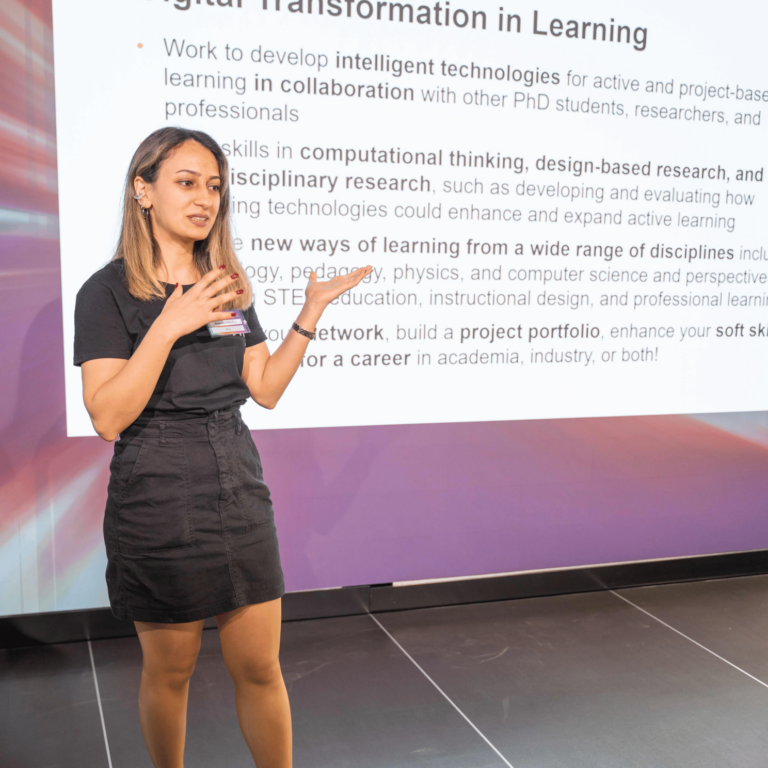Meet Melike Köroglu – PhD Student in Digital Transformation in Learning
In this episode of IT:U Stories, we meet Melike Köroğlu, a PhD student in Digital Transformation in Learning. From using Minecraft to teach sustainability to building AI tutors and exploring eye-tracking in education, Melike combines creativity with cutting-edge tech. Curious, collaborative, and a little rock ’n’ roll –her journey is as bold as her favorite AC/DC track.
Where are you from? What did you do before joining IT:U?
I’m from Turkey. Before joining IT:U, I worked as a researcher at Johannes Kepler University (JKU) in Linz. I’ve lived in two countries so far: Turkey and Austria. Each place has shaped different parts of who I am—Turkey gave me a strong foundation and community spirit, while Austria helped me grow as a researcher and thinker.
If you had to pick one song for the rest of your life?
If I had to pick one song for the rest of my life, it would be “Back in Black” by AC/DC. It’s got a kind of fierce confidence that I admire. Every time I hear it, it gives me energy and a sense of independence—like saying, “I’m here, and I’m not backing down.”
What is your current research focus?
My research focuses on integrating technology into education. I explore hybrid learning environments that combine Extended Reality (XR) and E-learning platforms to support teachers and enhance student engagement. Currently, I am working on the AI-Tutor project, which supports university students during lectures. In parallel, I am involved in a project analyzing teachers’ decision-making processes using eye-tracking technology, in collaboration with interdisciplinary experts in education, psychology, and computer science, including researchers from IT:U and JKU.
Which of your publications or projects are you most proud of?
One of the projects I’m most proud of is a curriculum I designed using Minecraft to teach renewable energy and sustainability in STEAM education. Developed through a design-based research approach, it involved collaboration with teachers and researchers from multiple countries. I’m also proud of my recent work on integrating design thinking and computational thinking into math education, which is the focus of an upcoming journal article.
How is IT:U different from your previous academic experience?
At IT:U, interdisciplinarity isn’t just a concept—it’s embedded in every discussion and project. The openness to diverse perspectives and the balance between research and practice has made it more dynamic than any academic environment I’ve been part of before.
How has your research benefited from working in interdisciplinary teams at IT:U?
Working in interdisciplinary teams at IT:U has been incredibly valuable. It has challenged me to rethink educational problems from multiple angles—technological, psychological, and pedagogical. The diversity of perspectives pushes my research forward and helps ensure that the tools and environments I design are not only technically sound but also meaningful and inclusive for learners.
Have you worked in any of IT:U’s Learning Labs?
Yes, I worked at INES – Human-Computer Interaction Lab. It was exciting to prototype immersive learning experiences and test them in real-world educational settings. We designed a chemistry LAB for ADHD students. The hands-on environment really supports creative experimentation.
Your best memory at IT:U so far?
One of my best memories at IT:U so far was the Honor Code Ceremony during Welcome Week. It was a truly meaningful moment where I felt a strong sense of belonging to the IT:U community.
What advice would you give to someone (from a non-technical background) thinking about applying to IT:U?
Don’t be discouraged by the tech focus—IT:U is about solving real-world problems, and that requires many perspectives. Your unique background is a strength, not a weakness. What matters most is your perspective and the value it brings to complex, interdisciplinary challenges.
PhD in Digital Transformation in Learning – Now Open
Melike’s story is just one example of how IT:U students are redefining the future of learning through interdisciplinary research and creativity. The PhD in Digital Transformation in Learning is now open – apply by 30 April 2025 and be part of the change.
